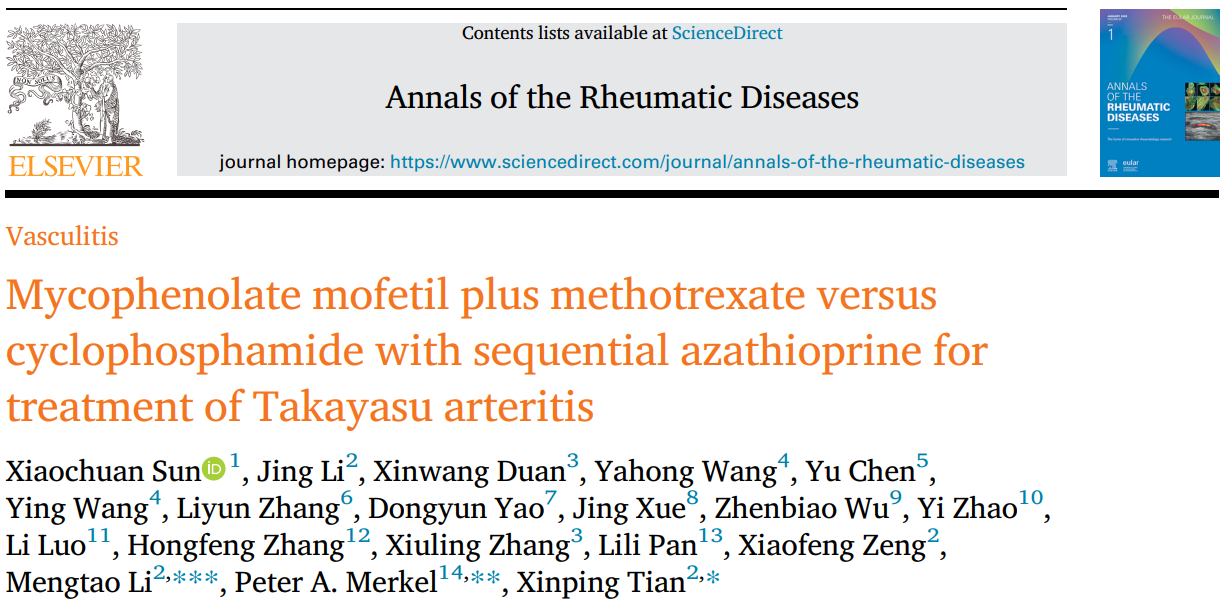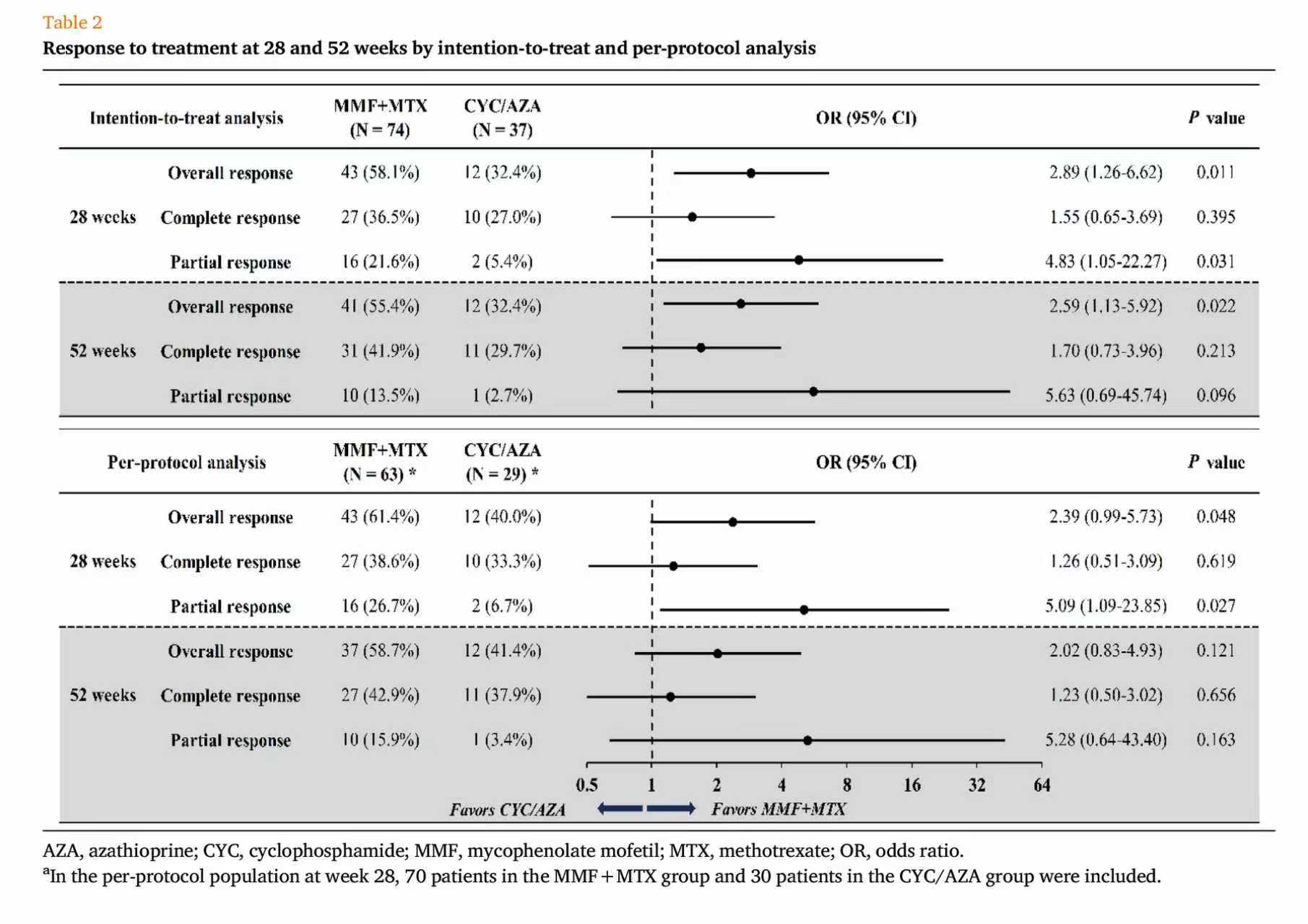Recently, a team led by Chief Physician Tian Xinping from the Department of Rheumatology at PUMCH, in collaboration with multiple national medical centers, published a multicenter randomized controlled trial (RCT) on the efficacy and safety of conventional immunosuppressants in treating Takayasu's arteritis (TAK) in Annals of the Rheumatic Diseases (IF: 20.6), a top-tier journal in rheumatic and immunologic diseases. The study results showed that methotrexate (MTX) combined with mycophenolate mofetil (MMF) was significantly superior to the conventional cyclophosphamide (CYC) with sequential azathioprine (AZA) in inducing and maintaining remission. This is the third RCT globally on TAK, with the largest sample size. It is also the only study to date that has yielded positive results, providing crucial evidence for optimizing TAK treatment and potentially informing updates to international guidelines.

TAK is a rare systemic vasculitis that primarily affects the aorta and its major branches, commonly occurring in women of reproductive age. The disease has an insidious onset and can lead to systemic inflammatory responses and affected arterial stenosis, occlusion, and aneurysms, causing irreversible damage to vital organs. TAK presents with complex clinical manifestations and has high recurrence rates. Treatment remains challenging due to limited drug options and difficulty assessing therapeutic response. With limited high-quality evidence available, treatment strategies have largely relied on clinical experience and individual case reports. Although biologics have been increasingly adopted in recent years, conventional immunosuppressants remain the first-line treatment for this disease. To date, there has been no direct comparison of efficacy between different drugs. Previously, only 2 RCT studies existed, both involving biologics, with sample sizes under 40 patients each, and both yielding negative results.
This study spanned five years and enrolled 111 patients with active TAK from 10 medical centers nationwide through the Chinese Rheumatism Data Center (CRDC). Patients were randomized 1:2 to receive either CYC/AZA or MTX + MMF. All patients received the same glucocorticoid treatment with the same tapering protocol and were followed for 52 weeks. Study results showed that the MTX + MMF group achieved overall response rates of 58.1% and 55.4% at weeks 28 and 52, respectively, significantly higher than 32.4% at both time points in the CYC/AZA group. Except for one patient who developed Grade IV bone marrow suppression during AZA treatment, all other patients tolerated the treatment regimens well.

△Research data
The study clearly demonstrated that in treating active TAK, MTX + MMF showed superior efficacy compared to CYC/AZA. Considering that TAK primarily affects women of reproductive age and that CYC has established reproductive toxicity, the study results suggest it should not be a first-line treatment choice. Instead, the study recommends MTX + MMF, which offers superior efficacy, better safety, and does not affect fertility. This research provides robust evidence for optimizing global treatment strategies for TAK and holds significant clinical importance.
This study was supported by the National Key R&D Program and the National High Level Hospital Clinical Research Funding, among others. Director Li Mengtao and Chief Physician Tian Xinping of the Department of Rheumatology at PUMCH, and Professor Peter A. Merkel from the University of Pennsylvania are co-corresponding authors. Attending Physician Sun Xiaochuan and Chief Physician Li Jing of the Department of Rheumatology at PUMCH are co-first authors.
Link to the published article: https://www.sciencedirect.com/science/article/pii/S000349672504289X
Written by and pictures courtesy of the Department of Rheumatology
Edited by Fu Tanping and Chen Xiao
Chief Editor Duan Wenli
Supervised by Wu Peixin
